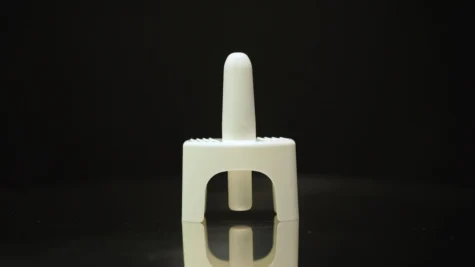For many individuals on the path to recovery from addiction, a sober living house offers a critical step between treatment and full reintegration into daily life. These structured, substance-free environments help residents maintain sobriety, build healthy routines, and develop essential life skills. A common question that arises, though, is: how long can you stay in a sober living house? The answer depends on several factors, including personal progress, goals, and the specific rules of the residence. Let’s explore the options and factors that influence the length of stay in sober living.
Understanding the Purpose of Sober Living Houses
Sober living houses, sometimes called halfway houses, serve as transitional spaces for individuals who have completed formal addiction treatment. Unlike residential treatment facilities, sober living houses provide more freedom but still enforce rules to support residents in maintaining sobriety. Residents typically hold jobs, attend school, or engage in other responsibilities while staying connected to their recovery journey.
Typical Duration of Stay in Sober Living
The average stay in a sober living house can range from 3-12 months. However, there is no standard limit, and most houses allow residents to stay as long as they need, provided they follow house rules and show a commitment to their recovery.
Here’s a breakdown of common timelines:
- Short-term stay (1-3 months): Some residents opt for a brief stay to get immediate support as they transition out of rehab. Short-term stays are often ideal for those with a stable support network and a relatively low risk of relapse.
- Moderate stay (3-6 months): A three-to-six-month stay is often recommended for individuals seeking a more thorough adjustment period, providing time to secure employment, strengthen sober habits, and set up a reliable support network.
- Long-term stay (6+ months): A longer stay may be beneficial for individuals with a history of relapse or those who need an extended period to rebuild their lives. Many sober living houses are open to this, allowing residents to stay until they feel ready to leave.
Factors That Influence How Long You Can Stay
Progress in Recovery
Each individual’s journey is unique, and a stay in sober living is often dictated by personal progress. If someone shows significant improvement in managing their addiction, maintaining employment, and engaging in healthy relationships, they may feel ready to leave sooner. Alternatively, if more support is needed, an extended stay might be the best option.
Sober Living House Policies
Different sober living houses have varying policies about the length of stay. While many offer flexible terms, some may have set timelines for residency. It’s essential to understand the specific house rules and policies before committing.
Personal Goals and Stability
Residents with specific goals, like completing education or building work experience, may choose to stay longer to achieve a greater level of independence. Sober living offers a stable environment, which can be valuable for those building a strong foundation for their future.
Support Network and Resources
Individuals with supportive family, friends, or a robust community recovery network may feel comfortable leaving sooner. However, for those with limited external support, a longer stay can provide ongoing structure and connection to resources.
Risk of Relapse
For individuals at higher risk of relapse, a longer stay can provide additional protection and support. Sober living houses typically offer ongoing counseling, accountability, and group meetings, which can be invaluable for those who need more time to solidify their recovery.
Benefits of an Extended Stay in Sober Living
Staying longer in a sober living house can have substantial benefits for certain individuals. Here are a few advantages of an extended stay:
- Time to Develop Coping Skills: More time allows residents to refine their coping strategies for dealing with triggers and stress.
- Stronger Peer Connections: An extended stay allows residents to develop friendships and support networks, often creating lasting bonds that continue post-recovery.
- Stable Employment and Financial Planning: Long-term residents often have more time to secure steady employment, save money, and plan for independent living.
When Is It Time to Move On?
While sober living houses provide a structured, supportive environment, there comes a time when many residents feel ready to leave. Some signs that you may be ready to transition out include:
- Confidence in Managing Sobriety Independently: If you’re consistently handling your responsibilities and triggers without relapse, it might be time to consider moving on.
- Strong Support System: Having a network of sober friends, family, or community support can ease the transition out of sober living.
- Stable Income and Housing: Financial stability and secure housing can make the move smoother and reduce stress, allowing you to focus on maintaining sobriety.
Finding the Right Fit with Southern Sky Recovery
At Southern Sky Recovery, we recognize that each individual’s journey is unique, and our team is here to support you at every step of the recovery process. Whether you’re looking for a short-term transitional stay or a more extended period in a sober living house, we’re committed to helping you achieve your goals and maintain long-term sobriety.
Learn More About Sober Living and Southern Sky Recovery
The length of stay in a sober living house varies greatly from person to person. What’s most important is focusing on your progress, building a strong foundation, and having the support you need to maintain sobriety when the time comes to leave. Recovery is a marathon, not a sprint, and sober living houses are there to ensure you have the time, support, and resources needed to succeed.
If you or a loved one is considering sober living or wants to learn more about the resources available, Southern Sky Recovery is here to help. Contact our top-rated drug rehab today to discuss options that align with your goals and recovery journey.



